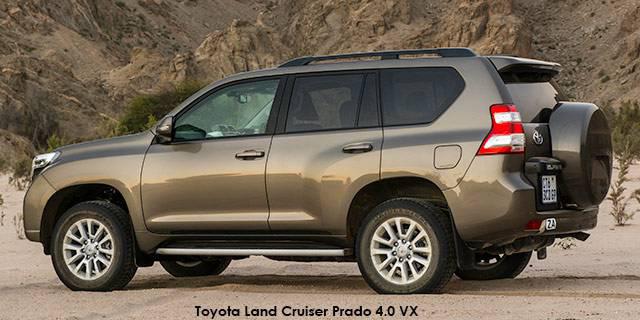Hyundai vows to produce longer-range electrified car – Big black cock News

Hyundai vows to produce longer-range electrical car
Share this with Facebook
Share this with Twitter
Share this with Messenger
Share this with Messenger
Share this with
These are outward links and will open in a fresh window
Share this with Facebook
Share this with Messenger
Share this with Messenger
Share this with Twitter
Share this with Pinterest
Share this with WhatsApp
Share this with LinkedIn
These are outward links and will open in a fresh window
Close share panel
Korean carmaker Hyundai is wading further into the electrical vehicle market, promising a car that can go 500km (311 miles) on each charge.
Hyundai already has an electrical model on the market, but its range lags behind its competitors’ models.
Along with its affiliate Kia, Hyundai is planning thirty one eco-friendly models by 2020.
The latest budge comes amid enhancing competition in the market for ecologically-friendly cars.
Hyundai’s environmentally-conscious fresh additions will include three plug-in hybrid vehicles, eight battery-powered cars and two fuel-cell vehicles.
The company also has plans to develop its very first dedicated facility for unspoiled electrified vehicles, which will permit it to produce a diversity of cars with longer driving ranges.
Its current electrified model, the Ioniq, has a range of 280km, less than GM’s Bolt or Tesla’s Model Trio, which both have ranges in excess of 350km.
Automotive analyst Robin Zhu from Bernstein Research says Hyundai’s fresh model would be competitive when it comes out after 2021, even however its high-end competitor Tesla will most likely exceed its expected range by then.
“For econo-boxes that go from A to B, you need to be competitive, but as long as they suggest the right product for the right value, the onus is not on Hyundai to do something groundbreaking,” he said.
China leads the way
Hyundai’s latest thrust into the electrical market comes amid growing global competition for electrical cars.
In addition to electric-only manufacturers such as Tesla and Faraday Future, major US, Japanese and European carmakers are now suggesting electrified options.
According to the International Energy Agency, fresh registrations of electrified cars hit a record in 2016, with more than 750,000 sales.
While electrical cars have the highest market share in Norway, far more are sold in China.
China accounted for more than 40% of the electrified cars sold last year, more than dual the amount sold in the United States.
The consultancy McKinsey said Chinese manufacturers produced 43% of the 873,000 electrical vehicles built worldwide in 2016.
Robin Zhu said the Chinese market is partly driven by generous government subsidies, and it’s unlikely that Chinese manufacturers will proceed to predominate over the long-term.
“Right now, VW’s market share is almost 0%. But it’s not going to be 0% when they pull up their socks and do it,” he said.
Hyundai vows to produce longer-range electrical car – Big black cock News
Hyundai vows to produce longer-range electrified car
Share this with Facebook
Share this with Twitter
Share this with Messenger
Share this with Messenger
Share this with
These are outer links and will open in a fresh window
Share this with Facebook
Share this with Messenger
Share this with Messenger
Share this with Twitter
Share this with Pinterest
Share this with WhatsApp
Share this with LinkedIn
These are outer links and will open in a fresh window
Close share panel
Korean carmaker Hyundai is wading further into the electrical vehicle market, promising a car that can go 500km (311 miles) on each charge.
Hyundai already has an electrical model on the market, but its range lags behind its competitors’ models.
Along with its affiliate Kia, Hyundai is planning thirty one eco-friendly models by 2020.
The latest budge comes amid enlargening competition in the market for ecologically-friendly cars.
Hyundai’s environmentally-conscious fresh additions will include three plug-in hybrid vehicles, eight battery-powered cars and two fuel-cell vehicles.
The company also has plans to develop its very first dedicated facility for unspoiled electrical vehicles, which will permit it to produce a multitude of cars with longer driving ranges.
Its current electrified model, the Ioniq, has a range of 280km, less than GM’s Bolt or Tesla’s Model Three, which both have ranges in excess of 350km.
Automotive analyst Robin Zhu from Bernstein Research says Hyundai’s fresh model would be competitive when it comes out after 2021, even however its high-end competitor Tesla will most likely exceed its expected range by then.
“For econo-boxes that go from A to B, you need to be competitive, but as long as they suggest the right product for the right value, the onus is not on Hyundai to do something groundbreaking,” he said.
China leads the way
Hyundai’s latest thrust into the electrified market comes amid growing global competition for electrical cars.
In addition to electric-only manufacturers such as Tesla and Faraday Future, major US, Japanese and European carmakers are now suggesting electrified options.
According to the International Energy Agency, fresh registrations of electrical cars hit a record in 2016, with more than 750,000 sales.
While electrified cars have the highest market share in Norway, far more are sold in China.
China accounted for more than 40% of the electrical cars sold last year, more than dual the amount sold in the United States.
The consultancy McKinsey said Chinese manufacturers produced 43% of the 873,000 electrical vehicles built worldwide in 2016.
Robin Zhu said the Chinese market is partly driven by generous government subsidies, and it’s unlikely that Chinese manufacturers will proceed to predominate over the long-term.
“Right now, VW’s market share is almost 0%. But it’s not going to be 0% when they pull up their socks and do it,” he said.